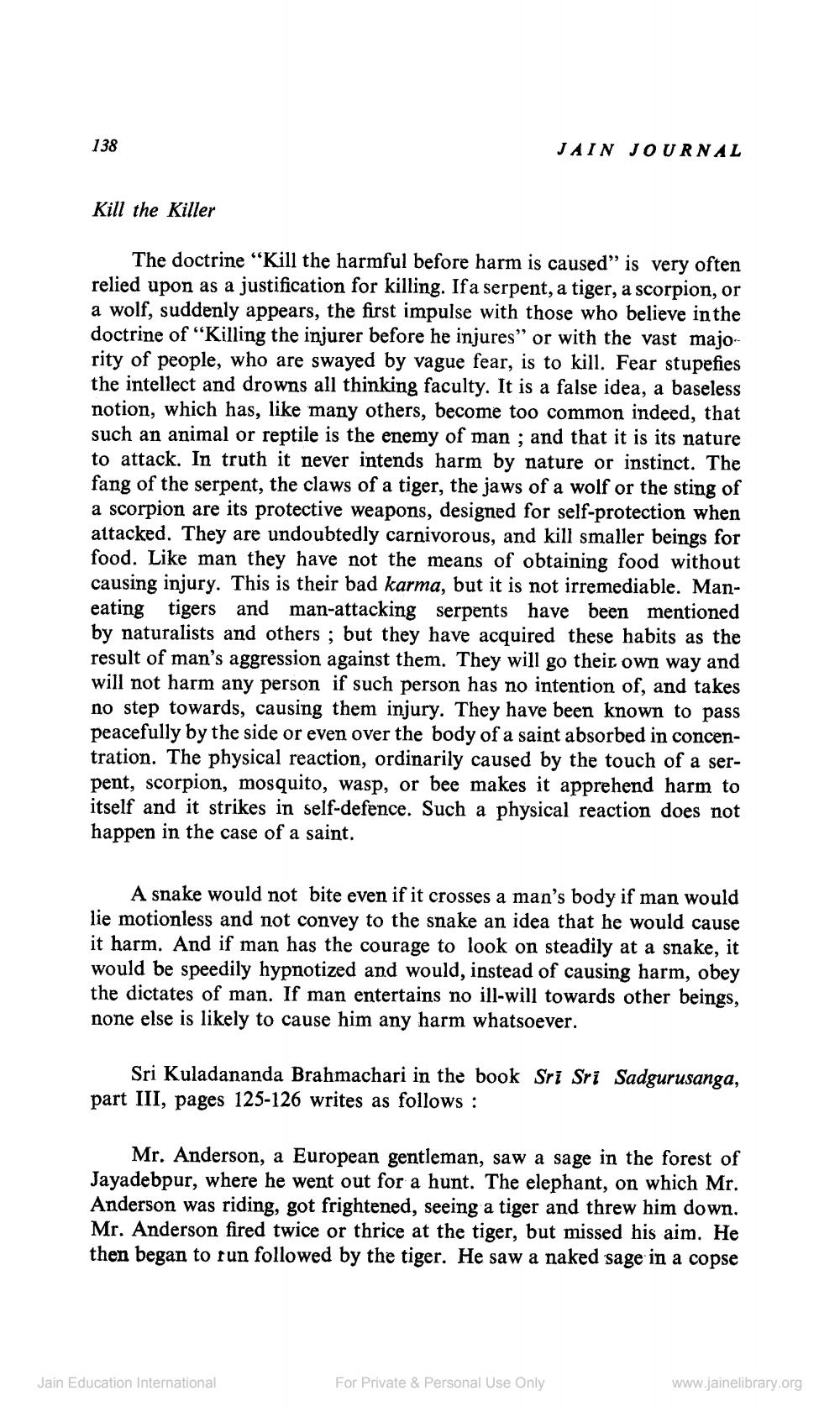________________
138
JAIN JOURNAL
Kill the Killer
The doctrine “Kill the harmful before harm is caused” is very often relied upon as a justification for killing. Ifa serpent, a tiger, a scorpion, or a wolf, suddenly appears, the first impulse with those who believe in the doctrine of “Killing the injurer before he injures" or with the vast majo-- rity of people, who are swayed by vague fear, is to kill. Fear stupefies the intellect and drowns all thinking faculty. It is a false idea, a baseless notion, which has, like many others, become too common indeed, that such an animal or reptile is the enemy of man ; and that it is its nature to attack. In truth it never intends harm by nature or instinct. The fang of the serpent, the claws of a tiger, the jaws of a wolf or the sting of a scorpion are its protective weapons, designed for self-protection when attacked. They are undoubtedly carnivorous, and kill smaller beings for food. Like man they have not the means of obtaining food without causing injury. This is their bad karma, but it is not irremediable. Maneating tigers and man-attacking serpents have been mentioned by naturalists and others; but they have acquired these habits as the result of man's aggression against them. They will go their own way and will not harm any person if such person has no intention of, and takes no step towards, causing them injury. They have been known to pass peacefully by the side or even over the body of a saint absorbed in concentration. The physical reaction, ordinarily caused by the touch of a serpent, scorpion, mosquito, wasp, or bee makes it apprehend harm to itself and it strikes in self-defence. Such a physical reaction does not happen in the case of a saint.
A snake would not bite even if it crosses a man's body if man would lie motionless and not convey to the snake an idea that he would cause it harm. And if man has the courage to look on steadily at a snake, it would be speedily hypnotized and would, instead of causing harm, obey the dictates of man. If man entertains no ill-will towards other beings, none else is likely to cause him any harm whatsoever.
Sri Kuladananda Brahmachari in the book Sri Sri Sadgurusanga, part III, pages 125-126 writes as follows :
Mr. Anderson, a European gentleman, saw a sage in the forest of Jayadebpur, where he went out for a hunt. The elephant, on which Mr. Anderson was riding, got frightened, seeing a tiger and threw him down. Mr. Anderson fired twice or thrice at the tiger, but missed his aim. He then began to run followed by the tiger. He saw a naked sage in a copse
Jain Education International
For Private & Personal Use Only
www.jainelibrary.org




